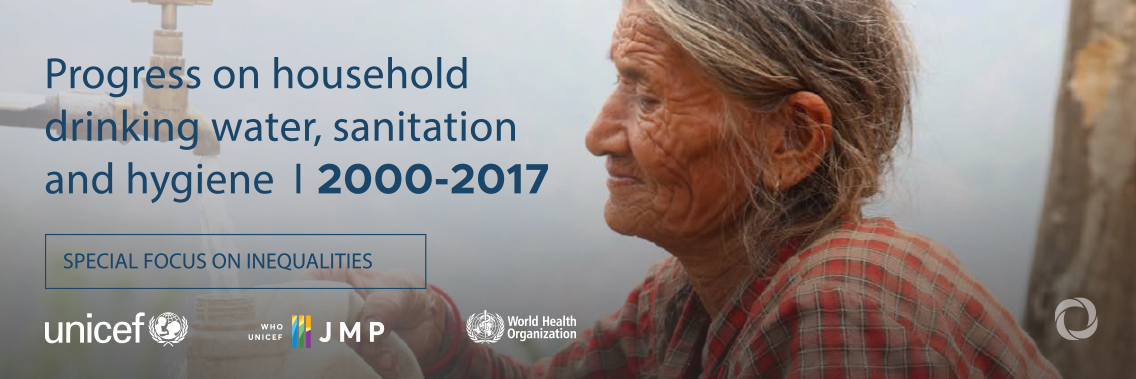Billions of people around the world are continuing to suffer from poor access to water, sanitation and hygiene, according to a new report by UNICEF and the World Health Organization.
Some 2.2 billion people around the world do not have safely managed drinking water services, 4.2 billion people do not have safely managed sanitation services and 3 billion lack basic handwashing facilities.
The Joint Monitoring Programme report, Progress on drinking water, sanitation and hygiene: 2000-2017: Special focus on inequalities finds that, while significant progress has been made toward achieving universal access to basic water, sanitation and hygiene, there are huge gaps in the quality of services provided.
“Mere access is not enough. If the water isn’t clean, isn’t safe to drink or is far away, and if toilet access is unsafe or limited, then we’re not delivering for the world’s children,” said Kelly Ann Naylor, Associate Director of Water, Sanitation and Hygiene, UNICEF.
“Children and their families in poor and rural communities are most at risk of being left behind. Governments must invest in their communities if we are going to bridge these economic and geographic divides and deliver this essential human right.”
The report reveals that 1.8 billion people have gained access to basic drinking water services since 2000, but there are vast inequalities in the accessibility, availability, and quality of these services. It is estimated that 1 in 10 people (785 million) still lack basic services, including the 144 million who drink untreated surface water. The data shows that 8 in 10 people living in rural areas lacked access to these services and in one in four countries with estimates for different wealth groups, coverage of basic services among the richest was at least twice as high as among the poorest.
“Countries must double their efforts on sanitation or we will not reach universal access by 2030,” said Dr. Maria Neira, WHO Director, Department of Public Health, Environmental and Social Determinants of Health. “If countries fail to step up efforts on sanitation, safe water and hygiene, we will continue to live with diseases that should have been long ago consigned to the history books. Investing in water, sanitation and hygiene is cost-effective and good for society in so many ways. It is an essential foundation for good health.”
The report also says that 2.1 billion people have gained access to basic sanitation services since 2000 but in many parts of the world the wastes produced are not safely managed. It also reveals that 2 billion people still lack basic sanitation, among whom 7 out of 10 live in rural areas and one third live in the Least Developed Countries.
Finally, the report highlights new data showing 3 billion people lack basic handwashing facilities with soap and water at home in 2017. It also shows that nearly three-quarters of the population of the Least Developed Countries did not have basic handwashing facilities.
Read and download the full report: Progress on drinking water, sanitation and hygiene: 2000-2017: Special focus on inequalities.
Original source: WHO
Published on 18 June 2019

